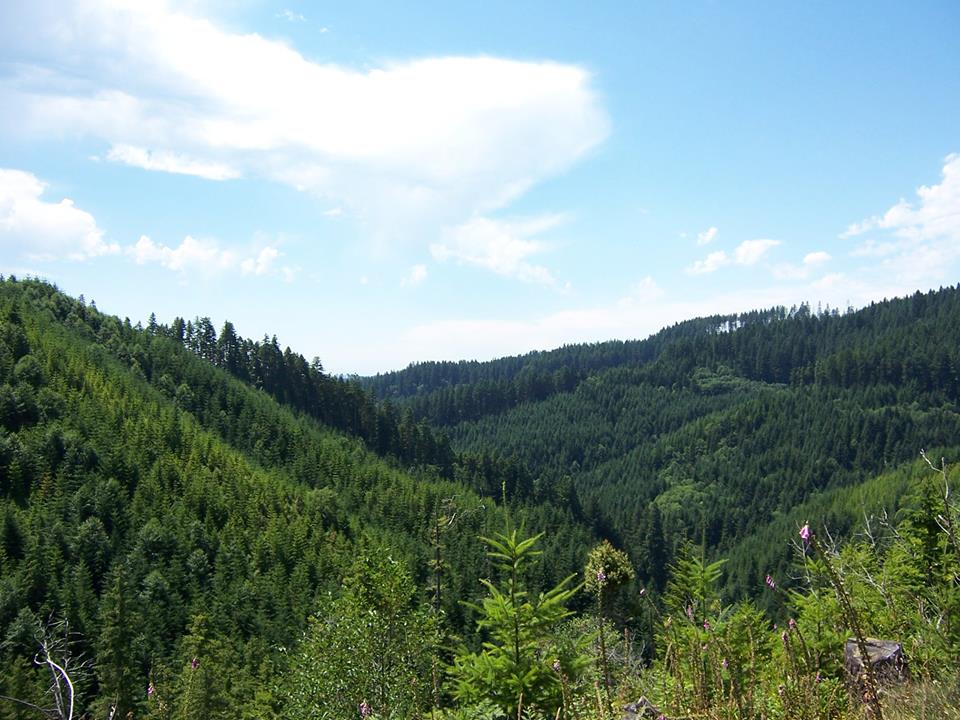(Salem, OR) — Despite the impacts of the COVID-19 pandemic and a devastating wildfire season, the collaborative process between 12 timber and forest products companies, the Oregon Small Woodlands Association, and 13 environmental and fisheries organizations to amend Oregon forest practices is moving forward. That process was established by the historic Memorandum of Understanding brokered by Governor Kate Brown in February. Today, Governor Brown announced that the signatories to the agreement have taken a major step forward this month by appointing experienced mediator Peter Koehler, Jr., to facilitate the dialogue, expected to begin in early 2021.
“I’d like to thank both sides for their continued commitment to the process we established in February: to create a future for Oregon with healthy forests, abundant salmon, trout, and wildlife, and a flourishing forestry industry––all made possible by sound science,” said Governor Brown. “Protecting Oregon’s environment and fostering economic growth for our rural communities are not mutually exclusive goals, but it will take both sides setting aside their past differences.
“I especially applaud both sides for their commitment to this historic process during a time when they face the twin challenges of the aftermath of a devastating fire season, and a pandemic which precludes the possibility for in-person, face-to-face negotiations. Peter Koehler is a mediator with the temperament and the experience to continue moving these negotiations forward under these unprecedented circumstances.”

Over the next 18 months, Koehler will oversee a collaborative and science-based effort to reach agreement on proposed modifications to Oregon’s forest practice laws in a manner that could achieve the highest level of conservation and regulatory certainty from federal fish and wildlife agencies while ensuring that working forests thrive. Such a plan would provide long-term conservation benefits to designated wildlife species, including the iconic Oregon salmon, while also providing operational flexibility and regulatory assurance to forest landowners.
As principal of Koehler ADR, LLC, Koehler brings both business and environmental perspectives to mediation. Koehler was selected for his extensive experience with arbitration, mediation, and litigation in complex legal matters, as well as for his impartiality in matters of forest management and natural resources. Koehler worked as a commercial litigator and trial lawyer for 20 years, including 15 years with Tonkon Torp, LLP, where he also served as Managing Partner. He then worked for 12 years as in-house counsel for Nike, first as U.S. General Counsel, and then as Vice President responsible for managing the global legal team. Koehler also serves on the board of the Oregon Environmental Council and, since his retirement from Nike, has mediated or arbitrated a broad range of cases. Koehler is a graduate of Stanford University and the Boalt Hall School of Law at UC Berkeley.
“We’re extremely pleased to start this process in the good hands of Peter, who we all agree is a qualified and competent mediator supported by all parties,” said David Bechtold, representative of the coalition of forest companies. “2020 has been a difficult year for everyone, but we’re looking forward to a new era and new opportunities in 2021. We remain committed to collaborating in good faith to produce the best outcomes for Oregon’s forests and the hundreds of thousands of Oregonians who depend on them.”
“This is an exciting and significant step forward, as we work together toward the common goal of modernizing Oregon’s forest policies,” said Bob Van Dyk, Oregon policy director at the Wild Salmon Center. “With the selection of Peter as our mediator, Oregonians can rest assured that we are committed to a collaborative process that ensures our forests, world-class salmon runs, and clean drinking water can be enjoyed for generations to come.”
Today’s announcement builds on the successful collaboration between the two sides in fostering new forestry policy to date, including:
- Passage of landmark legislation in the June special legislative session that increased drinking water protections with larger buffers around homes, schools, and water intakes for helicopter applications of pesticides on forestland. Senate Bill 1602 also created a state-of-the-art electronic notification system for real-time neighbor communications and timely post-application record availability for helicopter applications of pesticides on forestland.
- Expansion of harvest buffers around streams for salmon, steelhead, and bull trout in the Siskiyou geo-region, bringing buffers developed by forestry professionals and environmental leaders for that geo-region in line with the rest of Western Oregon, whose buffers were already expanded in July 2017.
- Abandoning forestry-related initiative petitions and related litigation in February that avoided a costly ballot measure fight, the outcomes of which would not have resulted in stability or adequate long-term conservation benefits for environmental or forest products interests.
In addition to undertaking administrative tasks and scheduling the first round of meetings, which are expected to get started in earnest after the first of the year, the Private Forest Accord working group will provide an update to the Legislature on the progress of the process before the 2021 legislative session adjourns.


